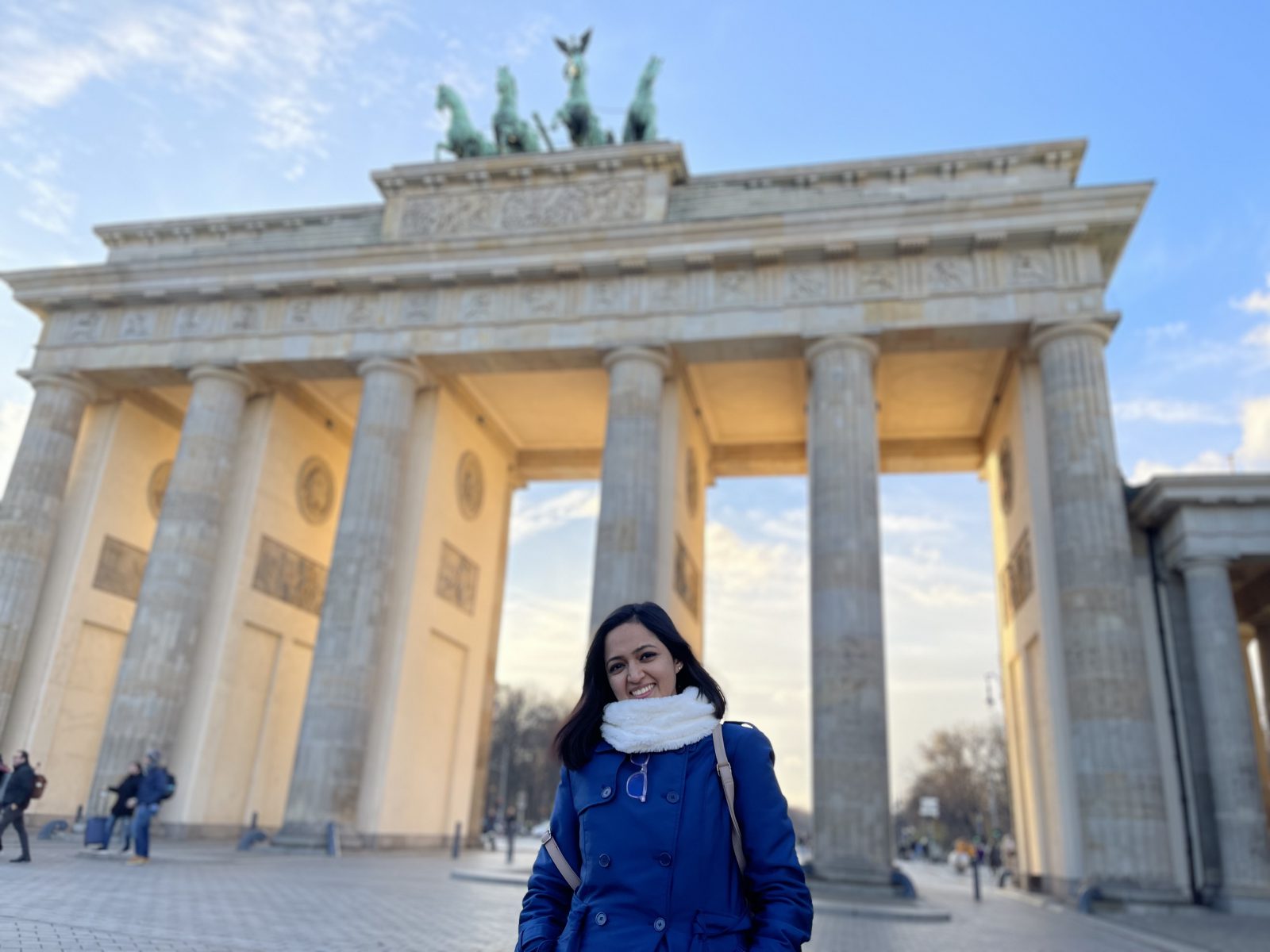
In November 2022, Laila Tasmia joined EUDiF as the latest recruit to the Diaspora Youth Internship. Laila, who hails from Bangladesh, is currently doing her master’s in Sustainable Development Management at Rhine Waal University of Applied Sciences under the DAAD scholarship in Germany. Read on to hear more about Laila’s journey so far and interests for the internship and beyond…
Hello Laila! We are very pleased to welcome you to the team for the next five months. What motivated you to apply for the internship and how are you feeling about it now you have started?
Laila Tasmia: I am passionate about the issues around gender, youth and migration. When I started working on migration in 2018 in Bangladesh, I fell in love with the concept of the migration and development nexus. This motivated me to obtain higher studies so that I can develop my skills in critical analysis and contribute to research and knowledge development. When I started my master’s course in 2021, I planned to dedicate my thesis to this passion area. The internship at EUDiF came just at the right time when I can extensively work on my passion by working on diaspora and development. Alongside my internship, I also want to do my thesis on the theme of gender and diaspora and EUDiF is giving me a fascinating journey so far.
You will focus on research and communication during your internship; what do you hope to learn and experience during your time with us?
LT: I am already loving seeing how EUDiF advocates for and supports diaspora engagement in development processes. I am looking forward to experiencing a variety of tasks on research, knowledge development and effective communications related to diaspora engagement. Within this, I am being given a lot of space and encouragement to explore my passion to work on migration and development. As a graduate student in the subject of Sustainable Development Management, I am also looking forward to learning more about the facility’s capacity development initiatives, as well as its project management. I think the experience will expand my professional capacity of being a development worker on the migration agenda.
You are currently based in Germany where you are studying for a master’s in sustainable development at the Rhine Waal University of Applied Sciences. Although you only plan to stay for the two years of study, do you self-identify as part of the Bangladeshi diaspora?
LT: My realization of being part of a diaspora dawned on me when I started surviving in Germany as a student migrant. Although I am currently a migrant for a short-term period, I identify myself as an aspiring “labour diasporan” from Bangladesh because I want to grow my career by working in other countries. In this emerging journey, I see how the community of my heritage, its history and culture create a strong emotional bond in me. Alongside my aspiration, I feel that I am part of my country’s development through my knowledge and work. I loved how EUDiF promotes this linkage between diaspora and the development of their country of origin. I feel acknowledged as a labour diasporan and development worker with this concept.
Whilst living in Germany, your family is in Bangladesh – How do you maintain connections with your diaspora and with your heritage?
LT: I find it rewarding to maintain my connections with my diaspora in Europe as well as with people in Bangladesh. I have some friends and relatives from Bangladesh who are now diaspora in Germany, the United Kingdom, Sweden and Belgium. While most of them work in academia, some of them are also running businesses or working in different capacities. I meet the diaspora living in Germany at different Bangladeshi cultural celebrations. Besides that, social media, particularly Facebook, is a blessing for me as I use it to connect with the diaspora living in other European countries as well as keep in touch with Bangladesh. As I was a development worker in Bangladesh, I also have a further network of Bangladeshi development workers in Europe. This inspires me to continue my work as a labour diaspora, like them.
Why do you think it is important to engage diaspora in efforts for the development of the country of heritage?
LT: I think it is very important. We see in the Sustainable Development Goals how all forms of stakeholders are essential for holistic development in both countries of origin and destination. I think the diaspora is the bridge to such a contribution and has value for positive narratives in the migration and development nexus. The EUDiF project is already creating evidence for such narratives with its different initiatives.
You are currently preparing to write your thesis on gender and diaspora. How do the two concepts relate and what are you intending to explore?
LT: Joining EUDiF has helped to generate an interesting thesis idea that I think will be perfect for my master’s degree: exploring diaspora engagement through a gender lens. I think the conversation on diaspora and development will be strengthened by examining this linkage because the understanding of experiences, practices and opportunities for diaspora engagement from the gender lens creates intersectional knowledge which is needed for inclusive policymaking. In my thesis, I want to explore the gender-specific experiences of diaspora women engaging in the development of their country of heritage. Currently, I am working on the proposal with the aim that the finished piece contributes to knowledge development on gender and diaspora.
You know that the team is very much looking forward to reading the results of your thesis, and discussing the research with you along the way. Good luck!